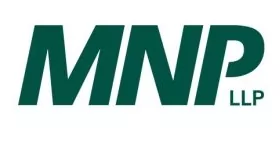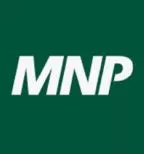Canada's Budget Implementation Act introduced in an omnibus bill on March 28, 2014 will introduce significant changes to our country's antimoney laundering (AML) program once passed. More businesses will have AML responsibilities, including bitcoin dealers and foreign companies offering services to Canadians. Entities that already have AML responsibilities, such as banks and securities dealers, will see their burden escalate.
They will be required to conduct enhanced screening of politically connected people, report large international wire transfers to the Canada Revenue Agency (CRA), follow ad-hoc Ministerial directives and share money laundering intelligence and risk management amongst their international affiliates. Some of the Financial Transactions and Reports Analysis Centre of Canada's (FINTRAC's) powers and responsibilities will change too, permitting them to disclose money laundering convictions they supported; but requiring them to delete information in their databases that shouldn't be there.
Real requirements for virtual currencies and companies
The bill extends all anti-money laundering requirements to dealers in virtual currency (presumably including bitcoins – the actual definition of virtual currency will be contained in the regulations) and all money services businesses operating outside of the country that serve customers in Canada.
Those businesses will be required to register with FINTRAC and will be required to identify their clients, keep records, file reports and detect, prevent and deter money laundering and terrorist financing. This will create greater alignment between Canadian and U.S. standards. Virtual currency exchanges are already regulated in the United States and Canadian companies that operate there are covered by U.S. law. Additionally, financial institutions in Canada will be banned from providing financial services to foreign money services businesses which are not registered with FINTRAC.
Politicians expose reporting entities to additional burden
One of the tools available in the battle against corruption is mandatory bank scrutiny of people with political connections. Currently, Canadian financial institutions must investigate their client lists for signs of foreign Politically Exposed Persons (PEPs); those who hold or have ever held a defined foreign position of political power, as well as their family members. Institutions are required to look into PEPs' sources of wealth, obtain approval to keep accounts open and conduct enhanced scrutiny of their ongoing activities if accounts remain open. Some are critical of this method, given there is no comprehensive list of all foreign PEPs and self-declaration is a generally accepted method of determination.
In this bill, the definition of a foreign PEP is expanded to include close personal and business associates of the individual (based on connections the financial institution knows or should reasonably know). Such broad definition and the knowledge standard required will surely complicate compliance and enforcement.
Additionally, the bill will require financial institutions to screen for domestic PEPs, those who hold or have ever held defined positions of political power within Canada, as well as their family members and close personal and business associates. In the case of a confirmed domestic PEP, financial institutions in Canada must conduct the same type of diligence as with foreign PEPs (looking into source of funds and obtaining approval for continuance), but there must be latitude about the depth and frequency of activity scrutiny. The same measures are prescribed for the heads of international state-sponsored organizations, their family members and close personal and business associates, if detected through mandatory screening.
Reporting large international wire transfers
Financial institutions are now required to report international wire transfers with a value of CAD $10,000 or more to FINTRAC. The bill will amend the Income Tax Act to include parallel provisions requiring those same reports to be filed with the CRA. Related amendments give FINTRAC authority to share information with the CRA related to compliance with that obligation, which suggests that the government will adopt single stream reporting.
Remarkably, Income Tax Act amendments written into the bill provide the CRA with powers to directly communicate apparently crime-related tax information with law enforcement. This usurps the role of FINTRAC as an administrative financial intelligence unit and undermines its role as a privacy guardian.
Share and share alike
When the new bill is passed, affiliated reporting entities will be required to develop and apply policies and procedures for the exchange of information among them, for the purpose of assessing risk and detecting or deterring money laundering / terrorist financing. Affiliated entities are those in a wholly-owned parent / subsidiary relationship, or one where both companies are wholly-owned by the same parent company. Combined with regulations which came into effect on February 1, 2014, this may require a system that permits a business relationship risk view incorporating all its countries and lines of business. Accordingly, risk mitigation could conceivably be shared and coordinated across geographies and business lines.
Ministerial directives
Introduced as a proposal in December 2011, Ministerial Directives (Directives) will become law and provide the Minister of Finance with powers to compel prescribed activities by reporting entities in respect of activities and transactions involving designated countries with little notice. In effect, Directives will give the Minister alternate and parallel sanctions powers to those now provided for by the United Nations Act and Economic Sanctions Act. The range of possible measures includes mandatory enhanced due diligence, transaction limits and delays, as well as mandatory reporting to FINTRAC. When regulations are released, it will become clear how reporting entities will have to evolve to meet the embedded timelines and possible range of mandated sanction activities.
What to do now?
The budget omnibus bill is expected to pass swiftly. Regulations must follow to give practical effect to the amendments. Some requirements, such as international large wire reporting to the CRA, are slated to come into force as early as January 2015. At this stage, we suggest advising boards and senior management about expected changes and their timing. Advance warning about additional laws and regulations expected in the coming months is also advisable.
The content of this article is intended to provide a general guide to the subject matter. Specialist advice should be sought about your specific circumstances.

